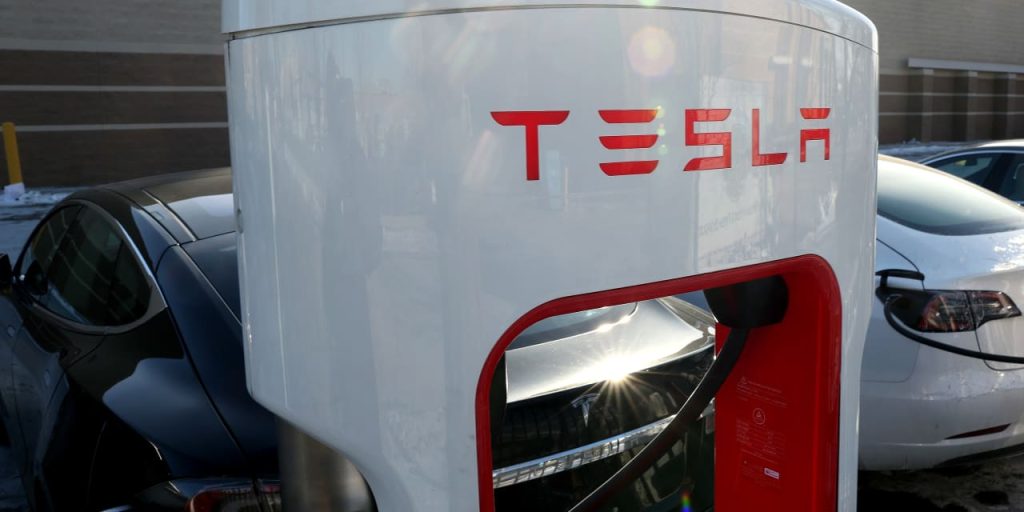Wall Street is worried about the state of electric-vehicle demand. Decelerating growth rates have left investors and auto makers nervous about the EV outlook for 2024.
Amid that backdrop, Wedbush analyst Dan Ives surveyed roughly 2,000 American consumers about their feelings toward EVs to get a sense of how the next 18 to 24 months will look.
The results suggest it will be a rocky patch for the disruptive battery-powered technology, and that rolling out new EV luxury models isn’t the way for auto makers to win market share or drive sales higher.
“There is naturally a major debate going in the auto industry and among investors around the pace of EV adoption…. and what the long-term strategy is for a more competitive EV landscape to convert consumers,” wrote Ives.
More than half of the survey’s respondents said they are considering a green vehicle for their next purchase—a clear positive for the industry. However, only about 16% of those who said they are considering a green vehicle would consider an all-electric model, also known as a battery-electric vehicle or BEV. Another 15% would consider a plug-in hybrid electric vehicle, or PHEV, and 27% would consider a traditional hybrid—like a Prius.
Critical factors in these decisions appear to be cost and infrastructure, according to the survey.
“Vehicle price and total cost of ownership take the forefront of importance,” wrote Ives, adding a lack of charging infrastructure is another key reason behind the lower interest levels in plug-in vehicles.
While EVs are cheaper to operate and maintain than equivalent gasoline-powered vehicles, they still have higher initial price tags (though EV tax credits can make some EVs cheaper than comparable gasoline-powered cars).
The average transaction price for a nonluxury car in the U.S. today is roughly $45,000. The average EV costs about $52,000, according to Kelly Blue Book. Excluding
Tesla
EVs—which make up more than 50% of U.S. EV sales—that average rises to $56,000. (Tesla’s rear-wheel drive Model 3, before any credits, starts below $39,000.)
The $11,000 gap between nonluxury cars and non-Tesla EVs is large.
“Auto makers must navigate a shifting landscape where EVs must be sold to a more budget-conscious demographic,” adds Ives.
Cheaper EVs and better chargers are critical to keep adoption in the U.S. moving higher. It sounds simple, but the industry doesn’t appear to be ready to meet consumers on those terms.
Overall, luxury EV model launches will outpace “affordable” EV model launches by roughly four or five to one in 2024—that ratio won’t help boost BEV penetration in the U.S. Car buyers will have a bevy of new luxury models to pick from, including the Audi e-tron Q6 and Cadillac Escalade.
Some lower-priced EV models are on the way, however. The all-electric Chevy Equinox arrives in 2024 and is slated to start at about $35,000. The Chevy Bolt is still on sale and starts below $30,000. The 2024 Hyundai Kona EV starts under $35,000, while the Hyundai Ioniq 5 EV starts under $42,000.
Tesla is also developing a less expensive car that investors refer to as the Model 2. That could be on roads by 2025.
Ives’ survey found that EV owners skew younger, 38 years old, and have a $64,000 budget for coming car purchases. Among drivers of gasoline-powered cars, the average age was 52, and the budget for upcoming purchases was $37,000. Their lower budget will likely make it harder for car companies to convert them to EVs until more affordable options arrive.
Cost is one reason Americans don’t appear to like EVs as much as European or Chinese car buyers. U.S. BEV penetration finished at about 8% of 2023 new car sales, compared with about 15% in Europe and about 25% in China. Based on that alone, it appears there is room for U.S. BEV sales to grow, but that conclusion is a little simplistic, failing to consider local driving habits and attitudes toward the environment.
Roughly 9 million battery-electric vehicles, or BEVs, were sold in the three major auto markets—the U.S., Europe, and China—in 2023, up roughly 30% compared with 2022. But sales grew more than 50% in 2022. What’s more, EV makers around the globe, including
Tesla,
are cutting prices to boost demand.
But in any case, as BEVs go more mainstream, more stories about EV issues—like rentals and cold performance—are creeping into popular consciousness. Despite those headwinds and the affordability issue, Ives is still an EV bull, and a Tesla bull. Ives rates Tesla stock Buy and has a Street-high price target of $350 a share.
Write to Al Root at [email protected]
Read the full article here




